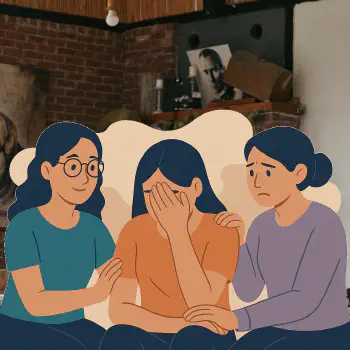These are trying, difficult and uncertain times due to the sudden and rapidly growing COVID-19 pandemic across the world. What is emerging as a collective human response to the distress is little actions of support, resilience, and hope that we are sharing with each other.
One such action has been a widespread effort by many individuals and organizations to collate lists of therapists who are offering their services for free, to address the mental health impact that the outbreak has been having. Here are some points we may want to be mindful of.
Questions to the curator of the list:
Curators are the individuals who care about supporting people’s mental health and have taken time out to collate and create the list of professionals/services. Here are some questions you should ask them:
- What nature of support are the counsellors on the list providing? Eg: Non-judgemental listening, suggestions and tips, a wholesome therapy session etc.
- How did they find the counsellors on their list?
- Have the counsellors shared the nature of their practice? Eg: Feminist, queer affirmative, trauma informed etc.
- How have the details listed been verified?
- How long is the list available for? How frequently would it be updated?
- Is the list crowd sourced? Or did counsellors recommend themselves onto the list?
Questions to the counsellors on the list:
- What are the terms (if any) to qualify for a free session?
- Ask them the duration of a session (an average session is about 45-60 minutes).
- Request their credentials and try to find ways to verify them.
- Ask them for the number of sessions that they would be able to offer their services for free.
- Ask questions to gain perspective on whether their practice is queer affirmative, anti-caste, feminist, social justice informed, trauma informed or any other values and beliefs that are important to you.
- Ask for their professional/personal profile links for you to see the work they’re passionate about and causes they support.
- Ask them how would they like to schedule the follow-up sessions with you.
What would we like you to know:
- If this is the first time you’re seeking support, try therapy resources to ease yourself into your first session.
- If you aren’t able to gauge a value sync in the first few sessions with your therapist, please don’t hesitate to bring it up with them to help them understand how you’re feeling.
- If the first session does not work out for any reason, it’s okay to reach out to another person listed on the directory.
- If the experience keeps repeating, please reach out to the curator of the list directly for further assistance.
- You could also reach out to collectives that stand by your values (queer rights, anti-caste, etc) for their counsellor recommendations.
- Some collectives provide a single phone number for assistance which is shared among many counsellors on a per-call basis. This could mean that the counsellor who lifts your call today, may not be the one who lifts your call the next time. Do check with them if this is the case.
Each of us has the right to receive support, care, and help. But most importantly, you have the right to a therapist whose practice is respectful, inclusive, and sensitive to your values, identities, and lived experience.
Our hearts are with all the passionate people who are working to collate some incredible resources and offer mental health services for free. We hope that these are some helpful points for you to keep in mind when you come across these lists.






























